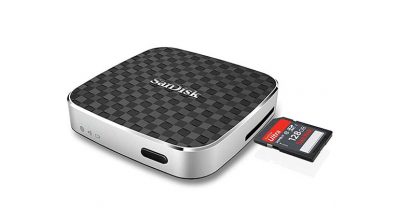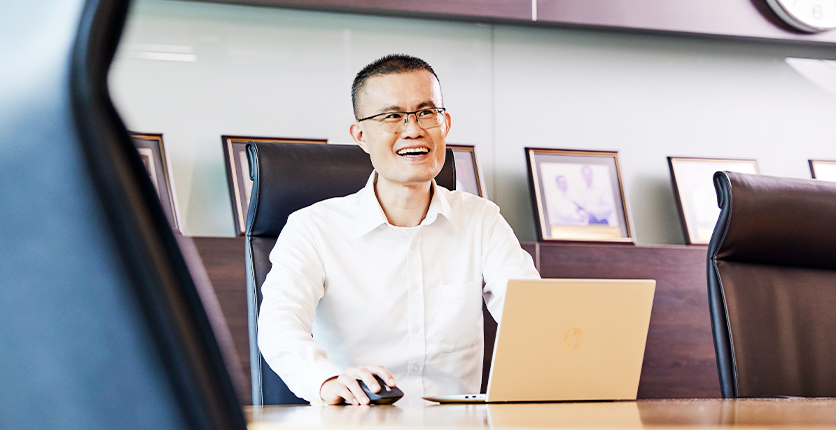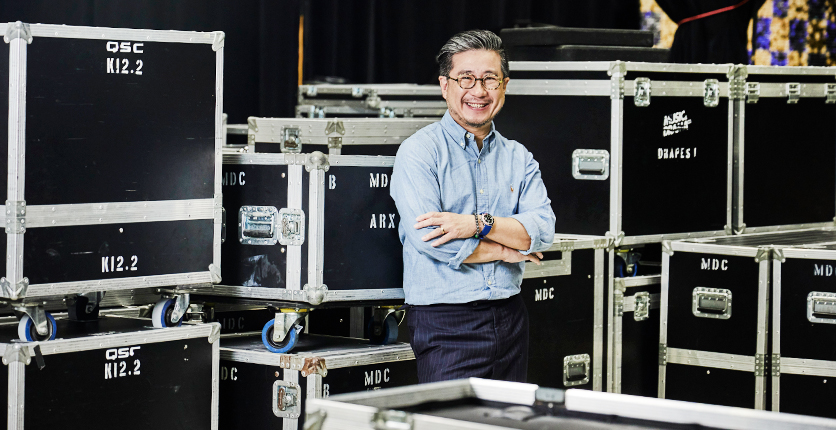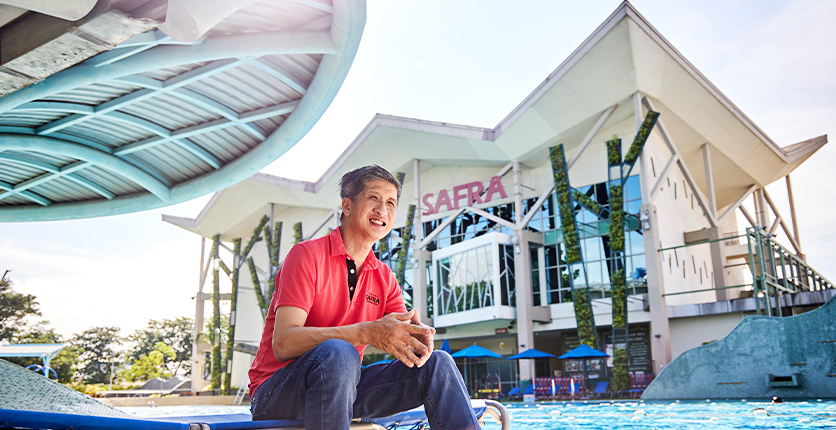Putting Joe and Marcus Wee together in a room, you wouldn’t immediately figure them to be brothers, let alone twins (albeit fraternal ones). Marcus has a fuller build and looks younger (despite both of them being 33), and Joe has a more athletic frame. The way they speak and communicate separates them even further: Marcus is more dynamic and expressive, while Joe is soft-spoken and concise with his words. Perhaps it is due to their differences – and how they overcame them – that Joe and Marcus have been so successful with Aftershock, their local boutique custom PC company that specialises in high-performance PCs.
Let The Games Begin
In an industry that has seen many players start and then bow out in the early levels, Joe and Marcus have been able to keep Aftershock going for five years, grown from a staff of three to 25, even expanding into new markets such as Thailand and Malaysia, and products like gaming monitors under their own Prism+ label. Joe shared an anecdote about how obsessed with gaming the two brothers were, even at a young age. Apparently, when they were six years old, Marcus approached their grandmother and convinced her to buy them a video game console.
As their parents were not fond of the idea of them playing video games, he had to wait for an ideal opportunity when his parents were away. “My dad smacked my brother that night,” said Joe, the elder brother by five minutes. “No, he smacked you!” said Marcus. “I told him you bought it!” Regardless of what really happened, the brothers grew passionate about gaming and spent much of their adolescence in LAN shops, though they would eventually go down different paths.
Joe steered towards first-person shooters like Counter-Strike and Half-Life at an enthusiast level, while Marcus became a competitive real-time strategy gamer, competing in games like StarCraft and Warcraft 3 (and was very well-ranked in Singapore too).
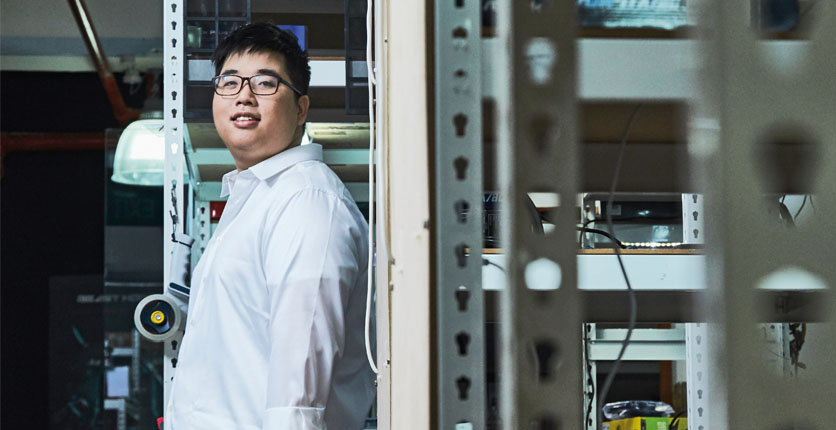
Customer Care
While on an exchange programme in Canada, Marcus bought a laptop from an American boutique company called XOTIC PC and was blown away by its friendly customer service. “It was phenomenal customer service,” he said. “The way they make you feel, and how they follow up after delivering the machine. It was very personal service, and it felt like you always had someone you could talk to.” Such service was unheard of in Singapore at the time, and Marcus came back wanting to change that. “Our business philosophy is built on great customer service,” he said. “In Asia, customer service normally takes a back seat, so if we get this right, we can really stand out.
“When customers come to pick up their PCs, we don’t just hand it over. We talk to them to find out more about their needs. Being Singaporean, they do get a bit surprised when we try to engage them like this.” So when he was 26, Marcus started doing serious research into the business, and speaking to suppliers and component manufacturers. Aftershock was officially launched less than a year later.
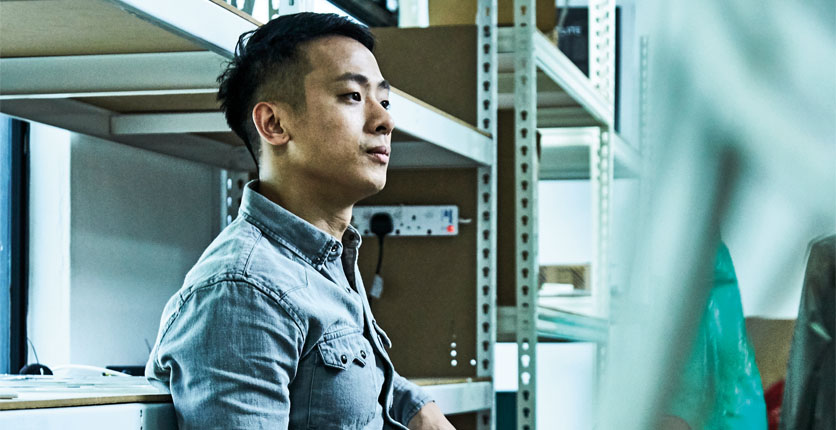
Different Skills And Ideas
Since Aftershock started in 2012, at least 15 other computer startups have entered the scene. Some are still around, but most of them did not take off and had to fold. Marcus estimates that the typical lifespan of these startups was only around a year. When asked about Aftershock’s ability to succeed, Joe pointed to the differences between the two brothers as a key reason. Many companies are started by friends with similar skill sets, something that isn’t always beneficial for the company, as these founders might not be able to cover a wide enough range of skills.
In contrast, Marcus and Joe bring vastly different skills and ideas to Aftershock. Both studied at SMU, with Marcus pursuing information systems, while Joe studied psychology. Joe’s skills now sit with the branding and marketing side of things (“creating the whole company look and feel,” as he describes it), while Marcus’ logical thought processes were put to work setting pricing strategies and planning products for specific demographics.
“Running a business is almost like playing an RTS [real-time strategy game],” Marcus said. “It’s highly strategic and you need to commit everything if you want to be the best in this industry.” Another unique selling point and reason for Aftershock’s success? It offers free after-sales services, such as free cleaning if you bring your PC or laptop back.
Brotherly Love
But does working with your twin create friction, especially when you have such different mindsets? “We had quite a lot of friction at the start,” admitted Joe. During the early days, they were “grinding” obsessively in the office seven days a week – “grinding” is a gamer term for repeating less glamorous tasks to “level up” your character – and constantly working or planning their next steps. They did not always agree on what those steps should be. However, both agree that going at each other really did help to improve things.
“As long as you’re fighting over something logical,” Marcus says. “It’s always good to express your opinions. If you always [agree], it’s not a good thing.” Joe adds: “Eventually, we decided to play to our strengths. Now, we are each in charge of different things, and we each give inputs, but leave the final decision to the [brother] in charge of the issue.” As Aftershock grows, a key challenge to managing this growth is keeping their original vision in mind. From just gaming laptops, they now build high performance PCs for people from all walks of life, ranging from videographers and photographers who need the high resolution rendering power, to scientists and corporate customers who run complex simulations all day.
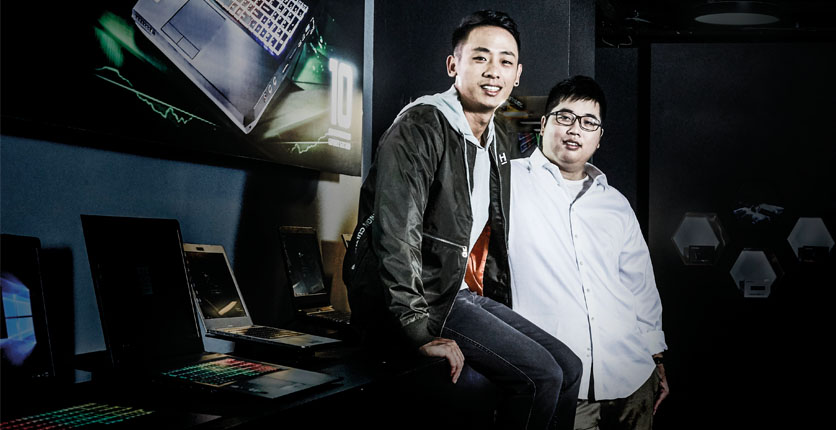
For the curious tech geeks, these latter machines are decked out with dual Zeon CPUs, four graphics cards, 128GB of RAM, 20TB of SSD storage, and special cooling solutions so that they can run non-stop. They’re upping customisation options with rare components and custom casings, as well as their signature custom paint jobs using automotive paints. They are also venturing into new products like monitors (under their Prism+ label) and other computer accessories.
But Aftershock made its name with customer service, and Marcus and Joe are adamant that this is an area that cannot be neglected with its rapid growth and higher turnarounds. To cope with the increased volume, they needed to grow the company with like- inded people who are equally passionate about the product and the gaming culture. “As our company grew, we hired some of our customers!” said Marcus. “We hired passionate customers who understood us. When customers buy a $2,000 to $3,000 product, it means they believe in the product.”
To ensure Aftershock’s continued success, the brothers intend to do what they’ve always been doing: be immersed in their business, and work hard all the time. “Hard work is our secret recipe,” said Marcus. “In gamer terms, be a grinder.”



